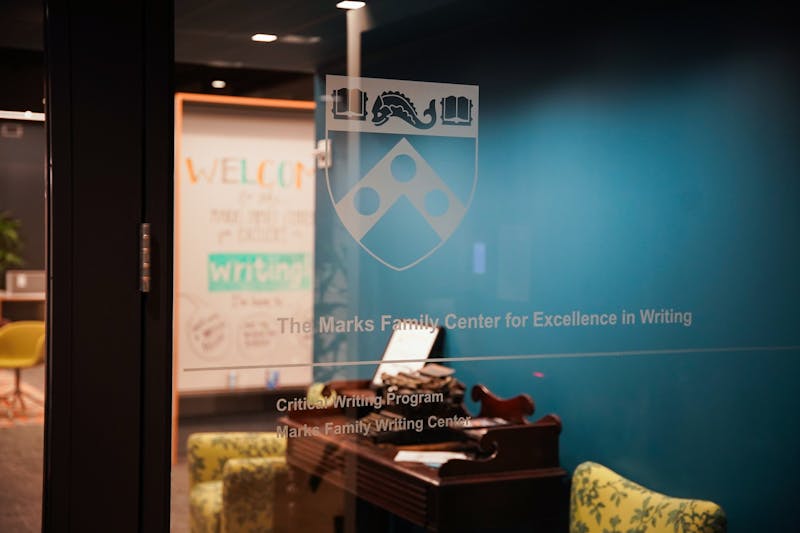Last Tuesday was an average day. College students walked to their classes carrying books, pencils and cups of coffee.
Life proceeded as usual at college campuses around the world, except at Al-Mustansirya University in Baghdad. At approximately 3:45 p.m., two minivans exploded near the gates of the campus. Sixty-five students were killed, leaving behind "bloodstained notebooks and a burned-out minivan that students had been getting into."
On Thursday, Jan. 18, this story appeared in the San Francisco Chronicle, part of an article explaining how severely the current war has affected Iraq's education system.
The destruction of academia is certainly not a priority on the list of negative results of war. But I think it is important for Penn students and faculty - moreover, American college students and faculty - to consider the following information a reminder of how fortunate we are that we don't have, and don't fret, such experiences:
"Iraq's higher education system was once considered the most advanced in the Middle East," the article proclaimed. Yet, as a result of the lingering war, it is currently deteriorating.
Thousands of Iraqi students have abandoned their campuses to return home or to attend universities in other countries. According to education officials quoted in the article, enrollment in some colleges has decreased by more than 50 percent in the past year alone.
Meanwhile, the article states, "Iraqi professors continue to be targeted for assassination and intimidation. According to Iraq's Higher Education Ministry, insurgent and militia groups have killed at least 280 academics since 2003 and 3,250 others have fled the country."
Random acts of violence around college campuses, like the bombing that occurred last Tuesday, are not uncommon. Iraqi students determine daily whether they will continue with their education after years of hard work or quit abruptly to evade danger.
In an interview with the San Francisco Chronicle, Zaineb Abdulmohee, a senior at Baghdad University, noted that only about 35 out of 85 students in her program were still coming to class before Tuesday's attacks.
"Many, many (students) have postponed their studies or come to campus just once a week," she said.
These students include a large number of college seniors like Ehab Hassoon, a 21-year-old in his final semester at Baghdad University's College of Science. In his interview he stated that if unpredictable acts of violence continue to occur near college campuses, he will have to stop attending classes.
"Life is more important than a diploma," he said, maturely.
Even students who venture to continue their education are taking extreme measures to increase their safety. Some are transferring to schools closer to home, while more are transferring to schools in different countries.
Professors for whom quitting is not an option are also taking precautions.
Nihad Al-Rawi, an assistant dean at Baghdad University and a professor of electrical engineering, hides a revolver in his office desk, according to the article. He states that he does not want to use it; he is simply preparing for someone to break into his office and kidnap him - an event that is not unlikely.
Few American college students realize how fortunate they are to not have to live by the credo "life is more important than a diploma." I don't think we'll ever fully understand how it feels to go through an intense education system for years, to thoughtfully plan out the rest of our professional lives - and then be forced to flee the country just before graduating.
We rarely, if ever, encounter situations that are in fact life or death.
To both the pro- and anti-war students and faculty members: I realize publishing any material regarding the war is a bold move. I simply want to recognize, publicly, that we all attend the University of Pennsylvania, and we do it worry free. We continue studying and teaching, we 'work-hard-play-hard.' Nihad Al-Rawi, with a gun in his office desk, admits to praying each morning before he goes to his office - "because I never know what will happen on the way."
As part of a college community, we should recognize that violence has become a way of life for individuals just like us, who have just as much involvement (or lack thereof) in the war. While prominent universities and well-educated people are respected in America, they're targets for attack in other parts of the world.
I'm not encouraging a specific action or response. My purpose is to point out that, in the heat of the perpetual political debate, we often forget how lucky we - average college students and professors - are to be so minimally affected by the war thus far. Elsewhere, the futures of average college students and professors have been effectively destroyed.
Jamie France is a College freshman from Plantation, Fla. Her e-mail address is france@dailypennsylvanian.com. Le Petite Freshman appears on Wednesdays.
The Daily Pennsylvanian is an independent, student-run newspaper. Please consider making a donation to support the coverage that shapes the University. Your generosity ensures a future of strong journalism at Penn.
DonatePlease note All comments are eligible for publication in The Daily Pennsylvanian.








